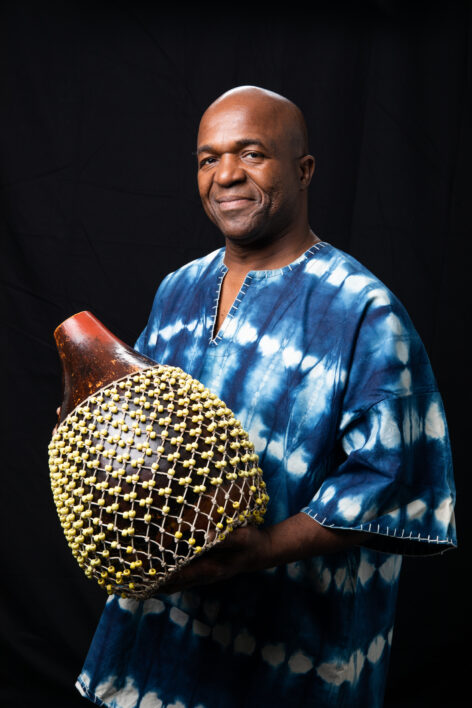Dancer, teacher, choreographer, and mentor, Sherone Price has been actively engaged in the field of dance for over 40 years. Sherone’s grounding is in the experiential foundation of curated and created movement. His movement vocabulary has its foundation in African Diaspora dance and his work is often informed through a career of extensive modern and contemporary dance training and practice. Prominent teachers include Baba Chuck Davis, Betty Jones, Nancy Pinkney, Mohammed Dacosta, Jan Van Dyke, Annie Dwyer, and Sekouba Camara.
Community is at the center of Sherone’s work. In echoes of his teacher and mentor, Baba Chuck Davis, Sherone calls out “ago” to get the attention of his dancers and reinforces the thread that weaves throughout his life and his work. He strives to create community within his classes and his choreographed works and creates and teaches dance for every body. While dance can be an end unto itself, for him, dance is also a vehicle for mutual exploration, communication and connection.
Sherone holds an MFA in dance from Hollins University and a BFA from the University of North Carolina at Greensboro. He serves as Associate Professor of Dance at Appalachian State University where he co-directs Diyé African Dance and Drum Ensemble along with Baba Khalid Saleem. In addition, he has been a faculty member at the American Dance Festival since 2003 and at the Oklahoma International Dance Festival since 2020. His works have been performed in local, regional, national, and international venues. Sherone’s dance career includes many highlights including being a founding member of the African American Dance Ensemble, performing Talley Beatty’s Mourner’s Bench at the ADF Scripps Award Concert and having his choreography performed at the White House. Sherone’s honors include a North Carolina Arts Council Travel Grant, Dance Alliance Artist Fellowship and various forms of recognition for his choreography and his service to the profession. He is a prolific choreographer and works with dancers of all levels from professional performers to new dancers. He appreciates the opportunity to mentor performers, choreographers and teachers as they strive to find their own voices and forge their own paths.
- Critical Correspondence Contributor

ID: Sherone stands in front of a black backdrop faintly smiling and holding a shekere in his hands.
